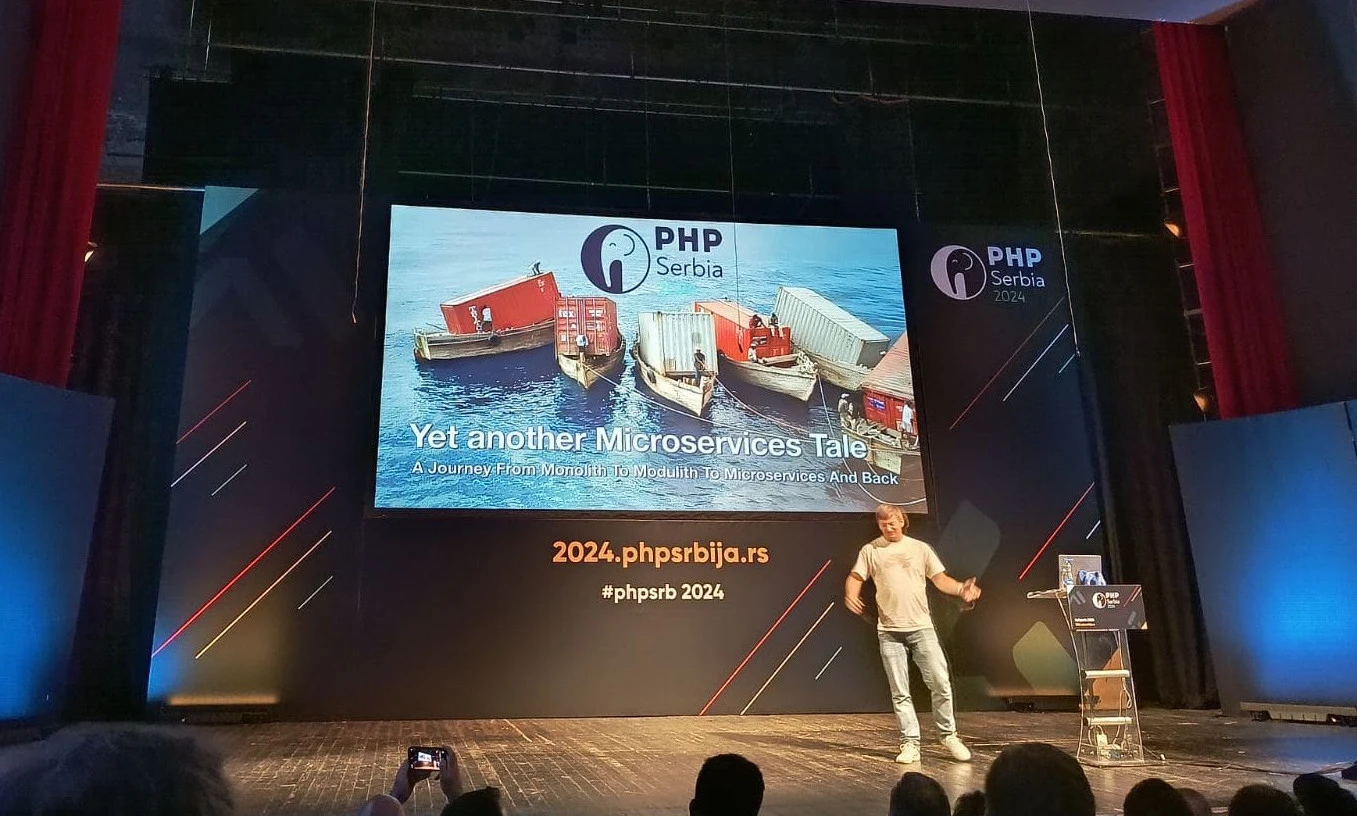
Key learnings from the conference
PHP Belgrade 2024
"Conferences are not just an opportunity to learn, but to share ideas, connect with like-minded individuals, and together shape the future of technology."
On the 6th and 7th of September 2024, the 9th prestigious international PHP conference was held in Belgrade. It has become a symbol of quality education and the exchange of knowledge in programming, with a special focus on PHP and other modern technologies. The conference gathered developers and technology enthusiasts from around the world, offering a platform to exchange ideas, learn about and explore the latest technologies and trends in the PHP community, and connect with industry experts.
Lectures and workshops
A wide range of content, including various lectures and workshops on PHP 8.3, advanced techniques in Symfony and Laravel frameworks, as well as best practices in security and performance optimization, made the entire conference both interesting and highly valuable. The speakers were leading experts in the PHP community who shared their experiences and insights with the participant
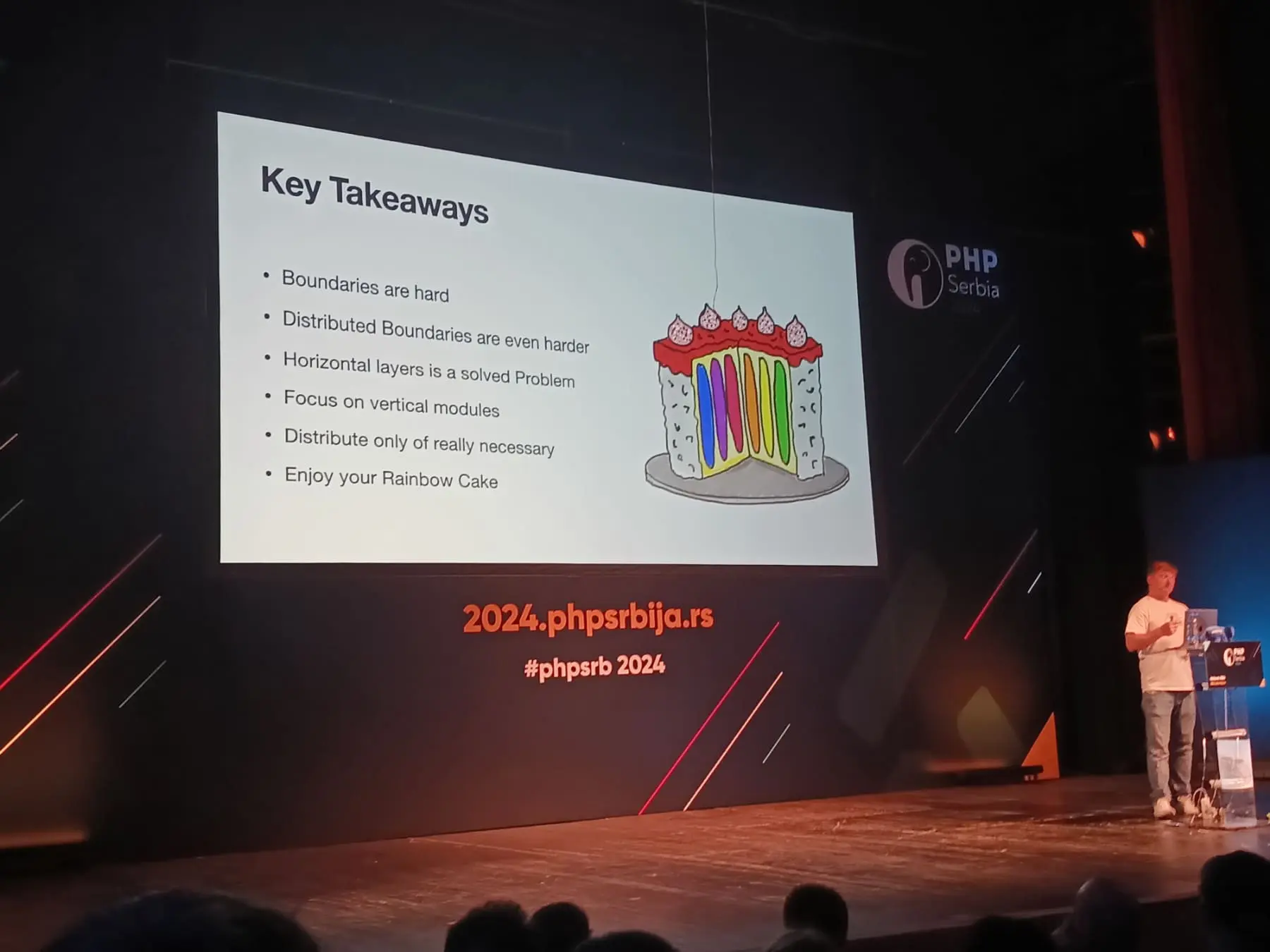
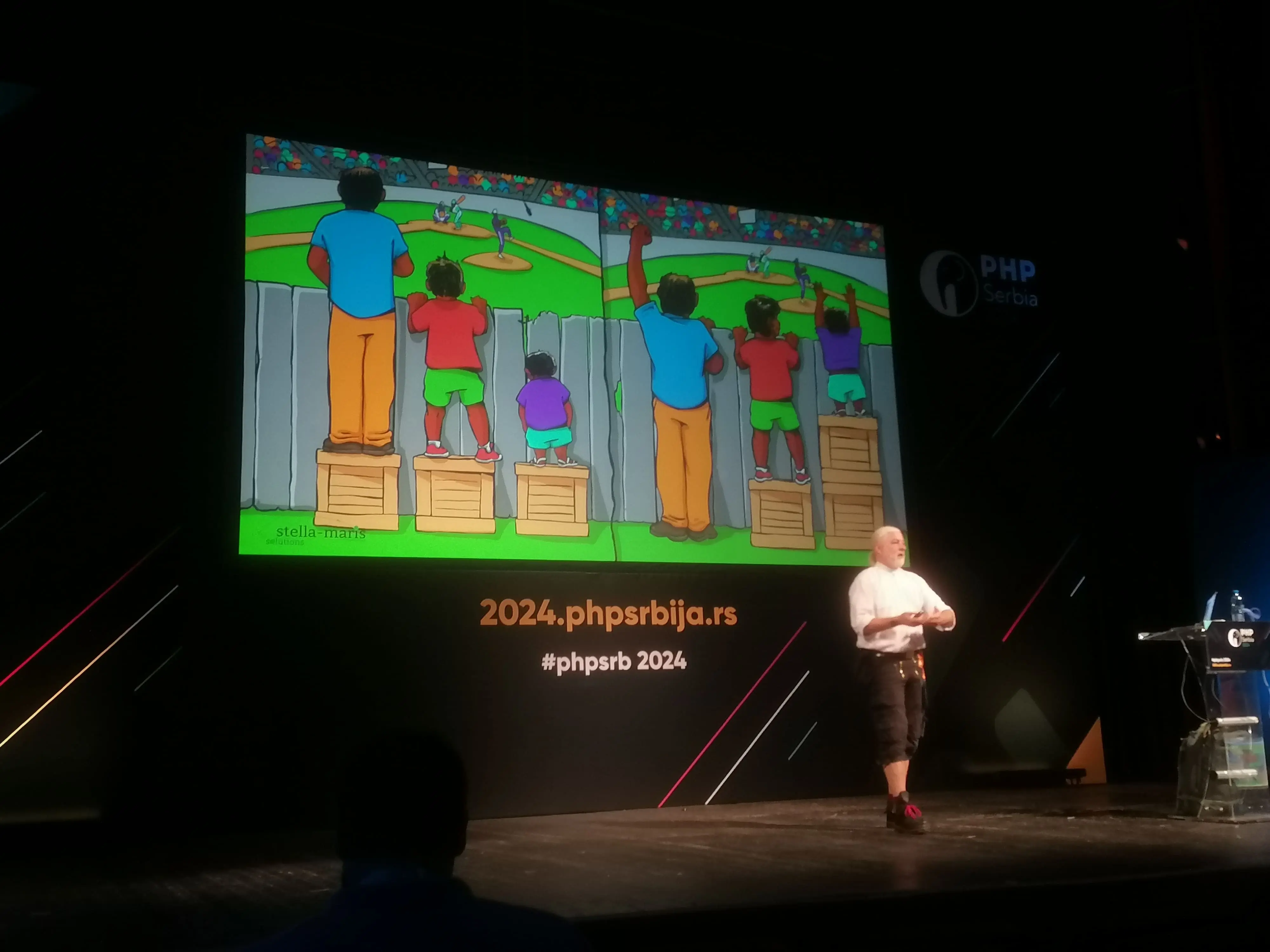
The PHP Conference 2024 was highly successful, providing participants not only with new knowledge and tools but also the opportunity to be part of the broader PHP community. With inspiring lectures and workshops, attendees left with many new ideas to apply in their daily work - and so did we.
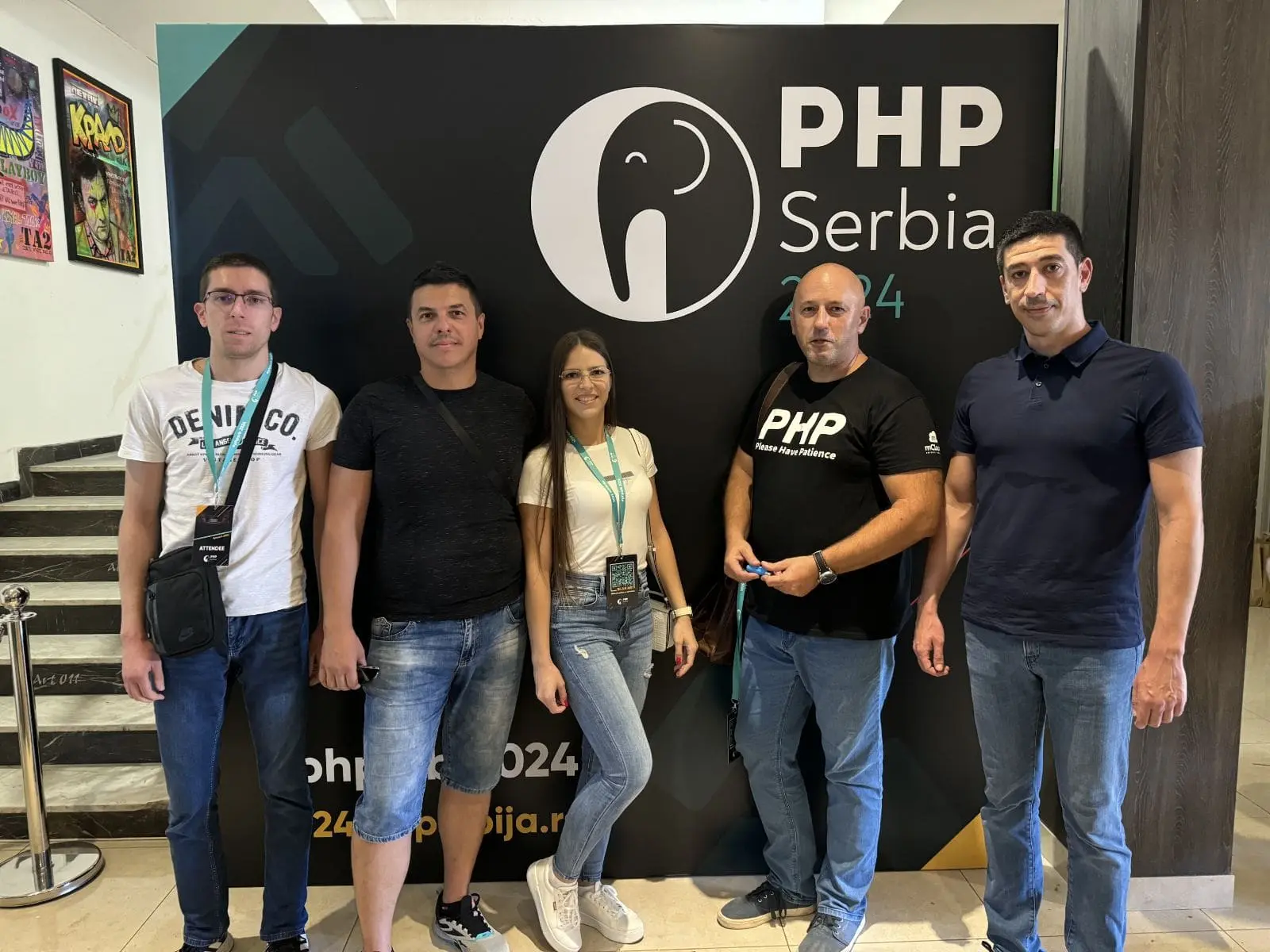
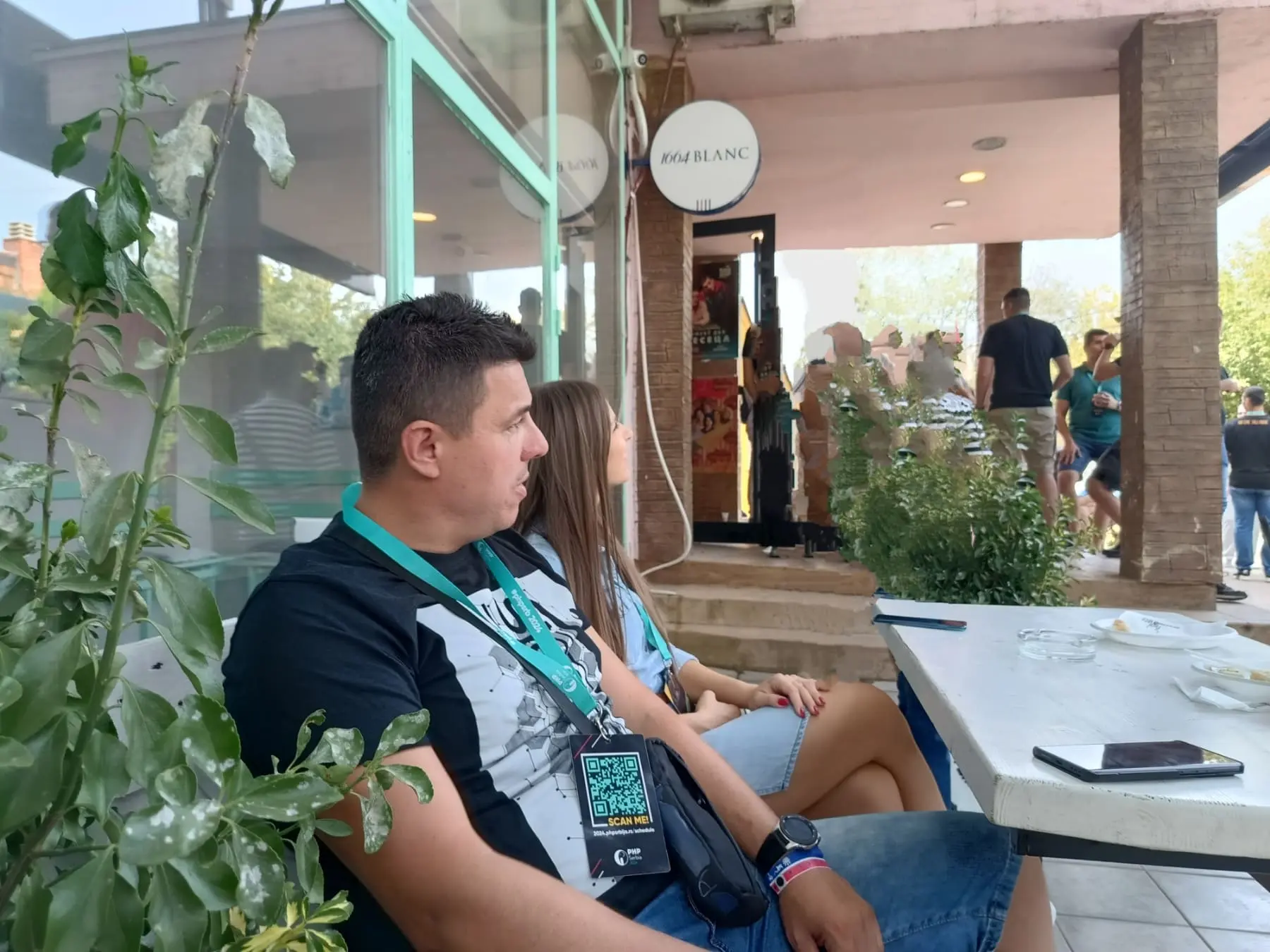
Presentations
Inspired by the conference and energized by new ideas, our colleagues Boris, Miljan, Nemanja, and Milica delivered insightful presentations on the lectures they found most interesting. They provided us with thorough and engaging overviews, sharing their key takeaways in a professional yet captivating manner.
Boris was the first to introduce us with the topic Monolith / MicroService = Legacy + Appliances, to be exact Living with Legacy Code: Finding Happiness in the Old Code (ExistingCode). In the following, he presented to us that living with legacy code doesn’t have to be a painful experience. He introduced us to some strategies to make working with it more manageable:
- Understand Before Changing: It’s crucial to understand the existing logic before diving into refactoring or making updates. The main focus should not just be reading the code - it’s a hard and time-consuming process, but the most rewarding. Legacy systems often embody business-critical operations so that any small changes can have widespread impacts.
- Refactor With a Plan: Refactor only if necessary. It’s essential to plan when and what to refactor. Refactor in small chunks. Limiting the scope of refactoring is crucial.
Legacy code brings value. Any production code is legacy code, meaning it’s existing, working code.
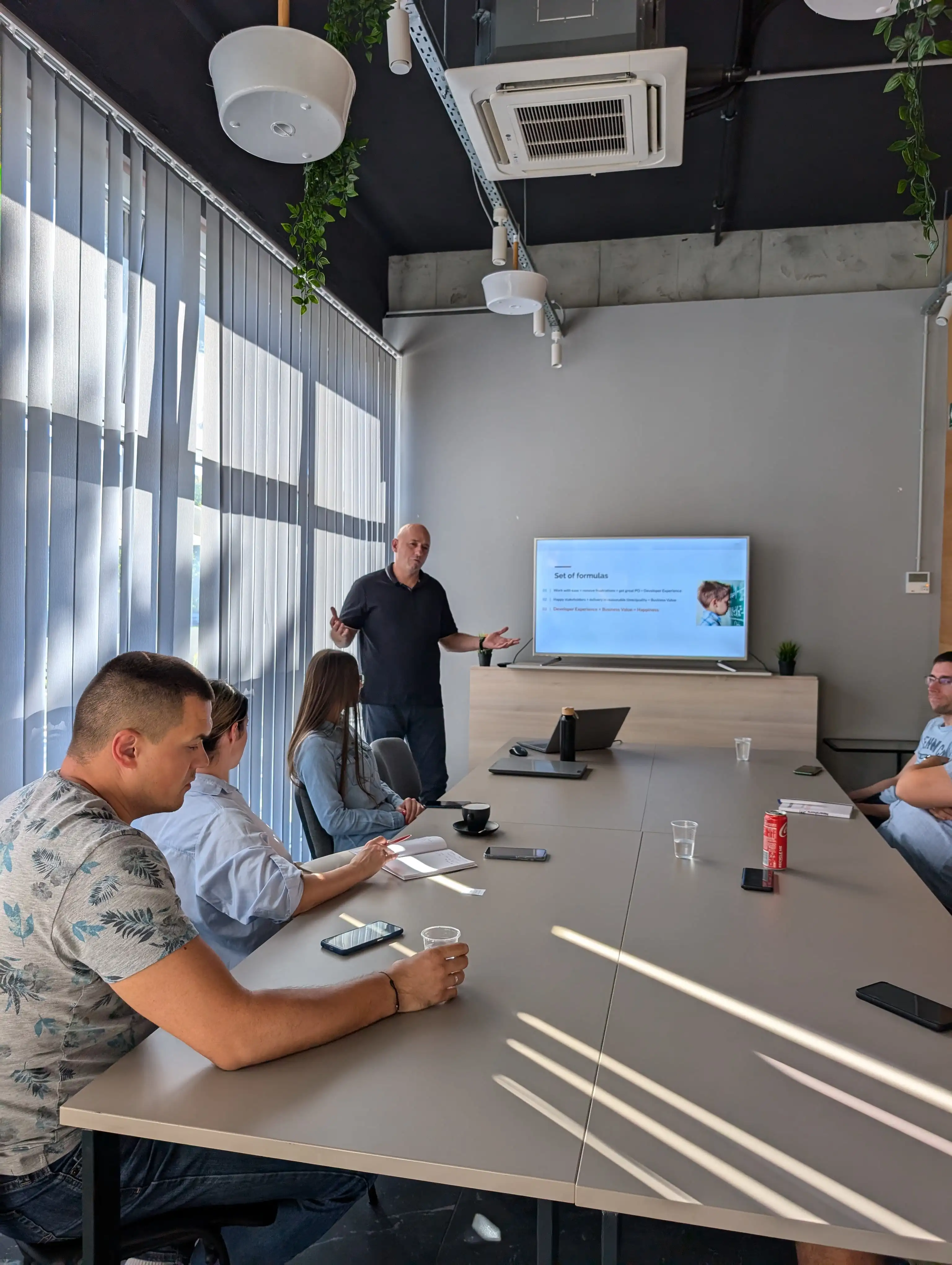
Through his presentation, Miljan presented the PHP language to us as a language that can compete with programming languages such as Java and Net. More precisely, the challenge is processing one million rows where a million lines have to be drawn and a string made of them with the help of some other functions instead of the ones originally used, then by using threads and PHP 8 JIT (just in time) the developer managed to lower the initial 35 minutes method execution for 27 seconds.
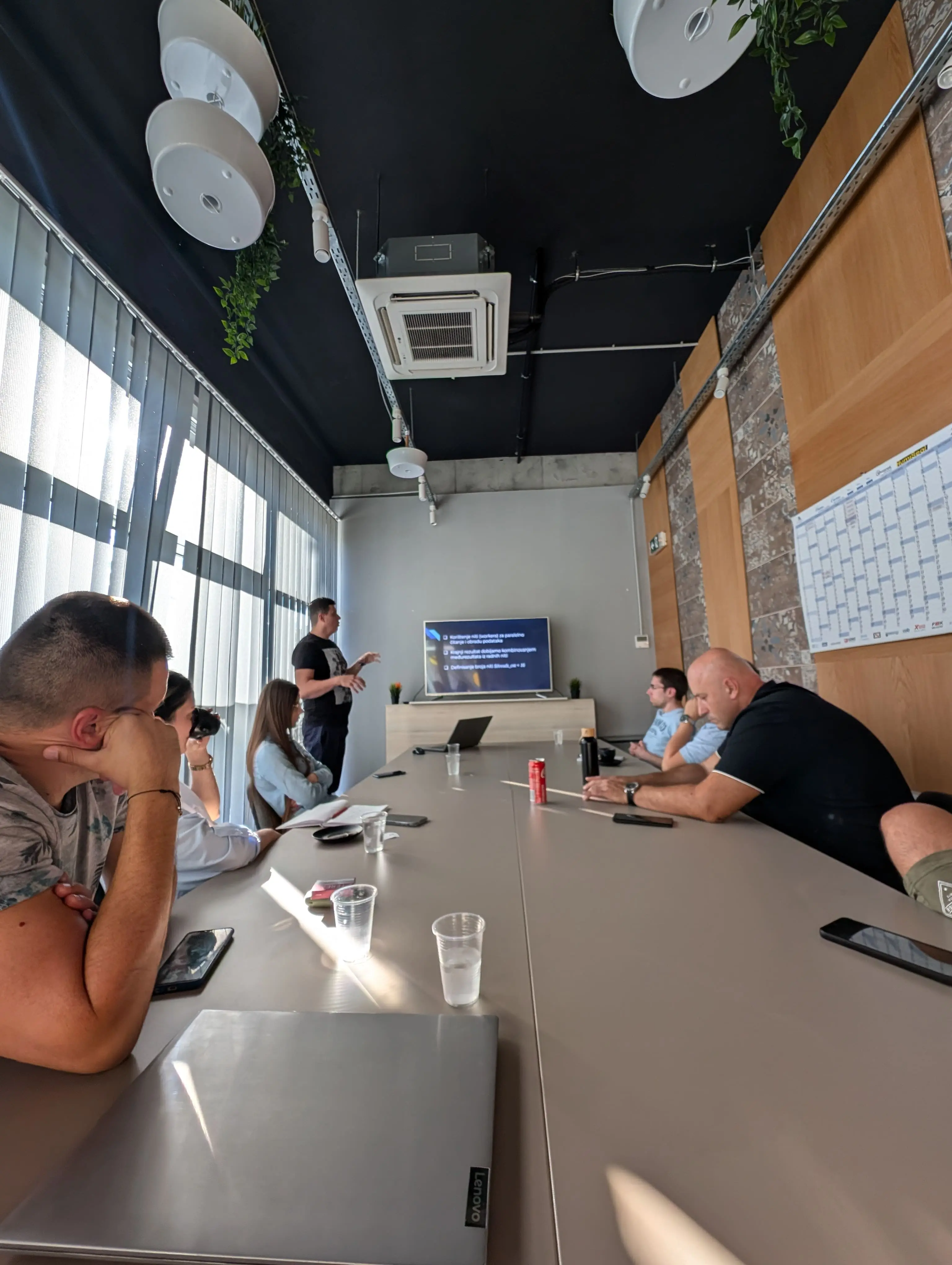
Nemanja shared the story of how our infrastructure has evolved to accommodate an increasing number of users - from local to cloud and back. How do you build infrastructure for more than just a few users? How do you go from 100 to 1,000 to 100,000 to tens of millions? What happens when hundreds of thousands of users hit your servers simultaneously due to popular demand? His story focused on how a small team of people managed to move software and services from one server to two, then to dozens in the cloud, and then back on-premises. What challenges did we encounter along the way, where we did fall short, and how did we resolve those issues?
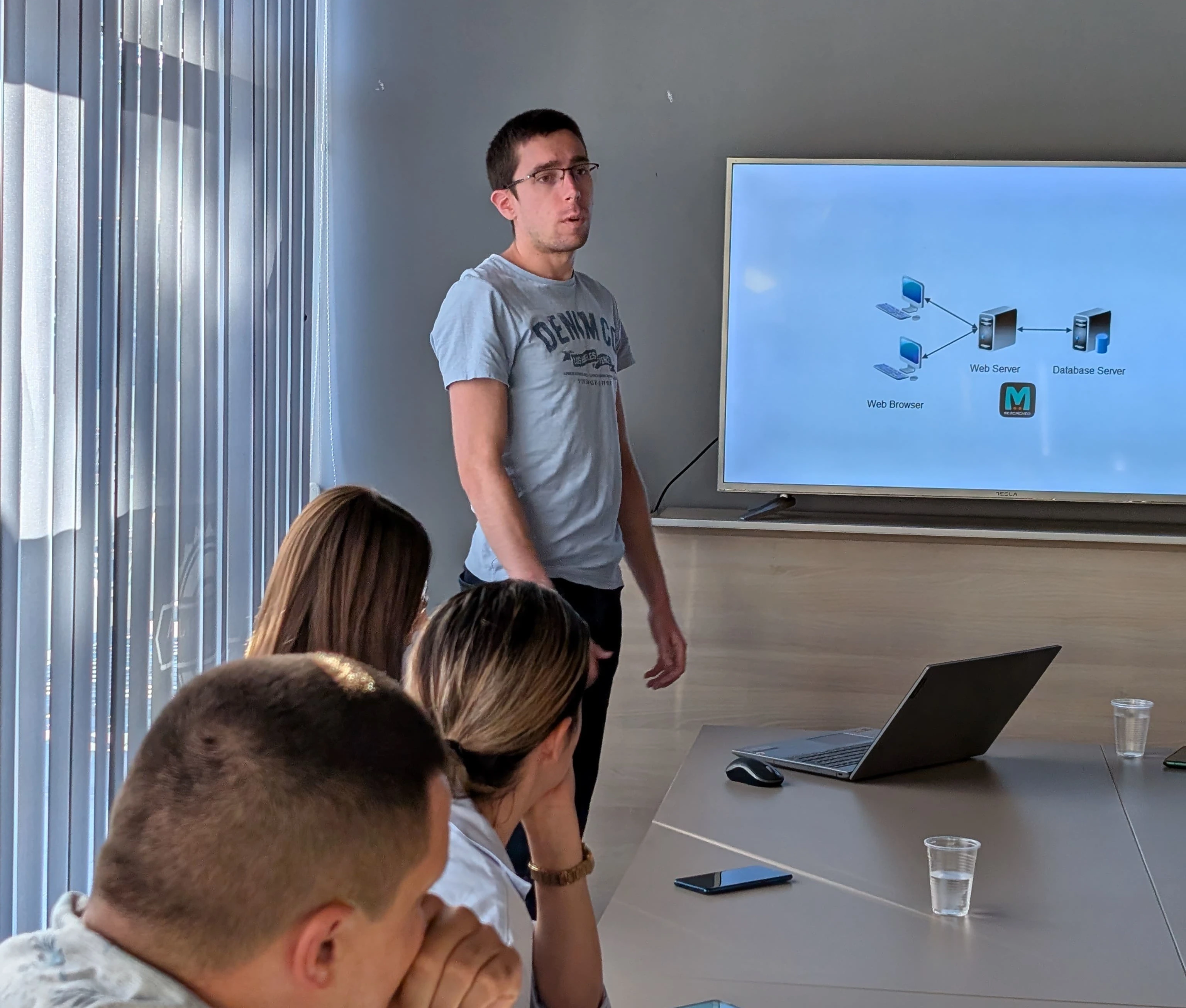
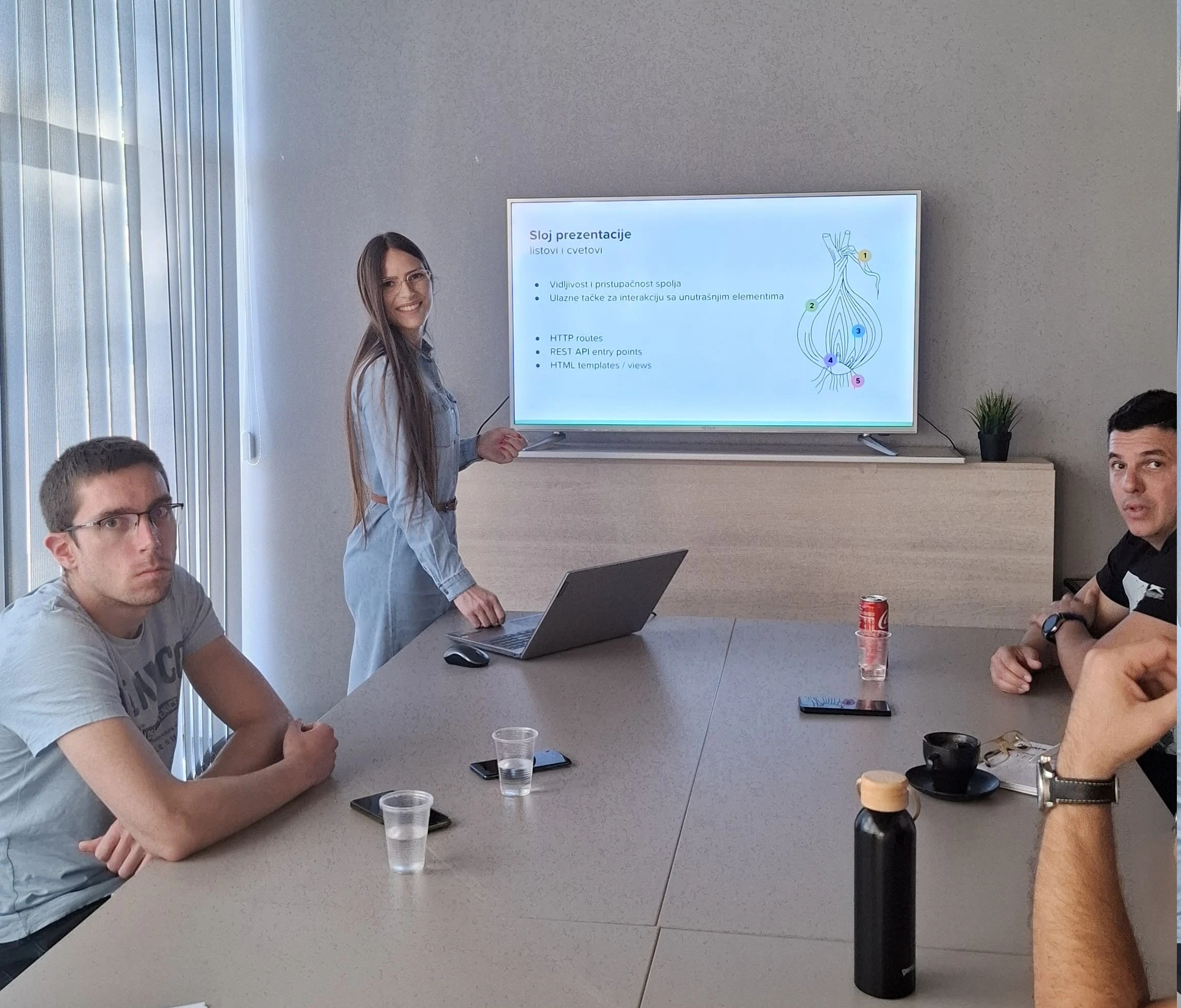
The last presentation was reserved for our youngest team member Milica, who discussed Onion architecture and how applying hexagonal architecture principles can revitalize monolithic systems. Using the metaphor of an onion, she explained the importance of separating the layers of an application to gain a better understanding and create a more organized and flexible code base. Key elements discussed include reducing code bloat, managing dependencies correctly, and implementing appropriate testing.
Questions and discussions followed the presentation, and we were all pleased to participate. We would like to extend our gratitude to all our colleagues for their hard work and dedication in preparing these briefings. We truly enjoyed every minute of the experience — even our teammates from Legal and HR joined in! Here’s to the next round of learning and sharing!

